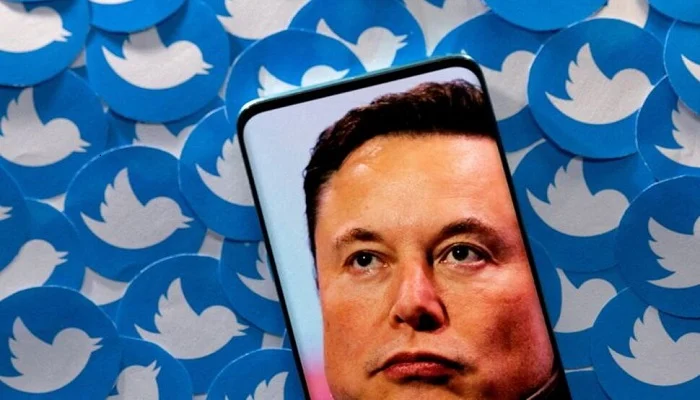- Twitter lawsuit accuses Elon Musk of contract breach
- Twitter also accuses Musk of “secretly” accumulating shares in company between January and March without properly disclosing substantial purchases to regulators.
- Musk did not immediately respond to a request for comment.
WILMINGTON: Twitter Inc has sued Elon Musk for violating his $44 billion deal to buy the social media platform and asked a Delaware court to order the world’s richest person to complete the merger at the agreed $54.20 per Twitter share.
“Musk apparently believes that he – unlike every other party subject to Delaware contract law – is free to change his mind, trash the company, disrupt its operations, destroy stockholder value, and walk away,” said the complaint.
The lawsuit sets in motion what promises to be one of the biggest legal showdowns in Wall Street history, involving one of the business world’s most colorful entrepreneurs in a case that will turn on staid contract language.
Related items
On Friday, Musk said he was terminating the deal because Twitter violated the agreement by failing to respond to requests for information regarding fake or spam accounts on the platform, which is fundamental to its business performance.
Musk, who is the chief executive officer of electric vehicle maker Tesla Inc, did not immediately respond to a request for comment.
The lawsuit accused Musk of “a long list” of violations of the merger agreement that “have cast a pall over Twitter and its business.” It said for the first time that employee attrition has been “on the upswing” since the deal was announced.
Twitter also accused Musk of “secretly” accumulating shares in the company between January and March without properly disclosing his substantial purchases to regulators, and said he “instead kept amassing Twitter stock with the market none the wiser.”
Shares of the social media platform closed at $34.06 on Tuesday, up 4.3%, but sharply below the levels above $50 where it traded when the deal was accepted by Twitter’s board in late April. The stock added another 1% after the bell.
Musk said he was terminating the merger because of the lack of information about spam accounts and inaccurate representations that he said amounted to a “material adverse event.” He also said executive departures amounted to a failure to conduct business in the ordinary course – although Twitter said it removed that language from the merger contract during negotiations.
Twitter also said it did not share more information with Musk regarding spam accounts because it feared he would build a competing platform after abandoning the acquisition.
Twitter called the reasons cited by Musk a “pretext” that lacked merit and said his decision to walk away had more to do with a decline in the stock market, particularly for tech stocks.
Tesla’s stock, the main source of Musk’s fortune, has lost around 30% of its value since the deal was announced and closed on Tuesday at $699.21.
In a separate filing, Twitter asked the court to schedule a four-day trial in mid-September.
In a memo to Twitter staff on Tuesday, Twitter Chief Executive Parag Agrawal sought to reassure employees about the future.
“We will prove our position in court and we believe we will prevail,” he wrote in the note, which was seen by Reuters.
Legal experts have said that from the information that is public Twitter would appear to have the upper hand.
“In its complaint Twitter is taking a strong position that Musk had a case of buyer’s remorse – and that, and not bots, is the reason for his decision to walk away from the deal,” said Brian Quinn, a professor at Boston College Law School. “The facts Twitter presents here make an extremely strong argument in favour of Twitter getting this deal closed.”
Musk is among Twitter’s most-followed accounts and the lawsuit included images of several of his tweets, including a poop emoji, that the company said violated the merger’s “non-disparagement” clause.
Musk tweeted the emoji on May 16 in response to a pair of tweets by Agrawal, explaining the company’s efforts to fight spam accounts.
It also included an image of a text message Musk sent Agrawal after Twitter sought on June 28 reassurances about Musk’s financing for the deal.
“Your lawyers are using these conversations to cause trouble,” Musk texted to Agrawal. “That needs to stop.”
Twitter noted that after Musk said he was terminating the deal, he sent tweets on Monday that Twitter said suggested his requests about spam were part of a plan to force spam data into the public sphere.
“For Musk, it would seem, Twitter, the interests of its stockholders, the transaction Musk agreed to, and the court process to enforce it all constitute an elaborate joke,” the lawsuit said.


 Latest News3 days ago
Latest News3 days ago
 Latest News3 days ago
Latest News3 days ago
 Entertainment3 days ago
Entertainment3 days ago
 Latest News3 days ago
Latest News3 days ago
 Latest News3 days ago
Latest News3 days ago
 Latest News3 days ago
Latest News3 days ago
 Latest News3 days ago
Latest News3 days ago
 Latest News3 days ago
Latest News3 days ago






















